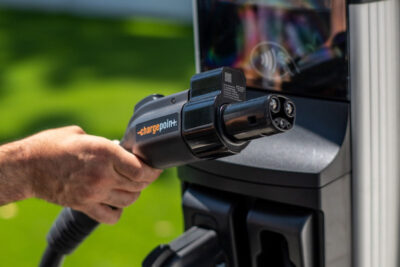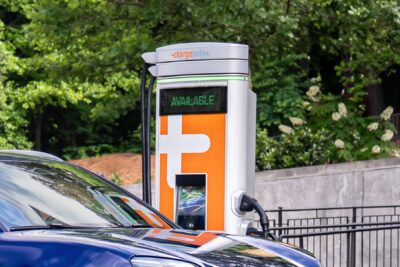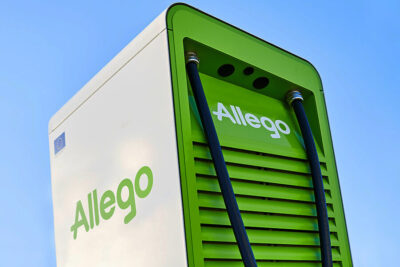EU: ChargeUp Europe sets concrete demands
ChargeUp Europe, the lobbying association of European charging infrastructure providers founded last year, is appealing to the EU Commission to set binding national targets for charging infrastructure as part of the reform of the Alternative Fuels Directive (AFID).
+ + Kindly see our updates below + +
In a position paper developed together with consultancy Arthur D. Little, ChargeUp Europe calls for minimum requirements for a total of at least 29,000 MW of installed capacity across the EU by 2025 to serve the number of cars with electric drives expected on European roads by then.
This organisation estimates this would require approximately 900,000 AC charging points, 200,000 DC charging points with more than 50 kW, and 40,000 high-power charging points with at least 150 kW. This would correspond to at least a four-fold increase in the currently installed total capacity for AC charging and at least a ten-fold increase in that for DC charging. By 2030, the capacity must increase to at least 66,000 MW.
It is not just about the numbers
It first appears a change in policy as ChargeUp Europe, when speaking to electrive earlier this year, emphasised the need for a dedicated Charging Infrastructure Regulation (CIR) in Brussels, ahead of the AFID revision. ChargeUp Europe President Christoph Burghardt said they wanted to see regulation that helped lay the groundwork but remained open to react to demand. “We want to be descriptive rather prescriptive,” he explained at the time.
While today’s rather specific targets may appear exactly like a prescription, the organisation stresses that it was not just about the numbers. Instead the charging infrastructure sector emphasises that it is crucial that these targets are complemented by harmonised rules under a new EU Regulation to break down the existing market and regulatory barriers to the scale up of infrastructure in Europe.
To do so, requires what ChargeUp Europe considers “robust projections” for the development of the domestic/professional situations of different EV drivers. Recommendations also include policies required to serve all use cases which should be outlined in “comprehensive national charging rollout plans” subject to oversight by the European Commission. In addition, terms such as ‘publicly accessible’ must have an agreed definition while any policy should aim to ultimately incentivise
“market-driven uptake beyond minimum thresholds,” the organisation notes.
“Targets for targets sake risk being ineffective, and targets on their own don’t make sense. It is even more important that they fit within a broader set of harmonised rules to tackle market fragmentation due to diverging national requirements and address barriers to the scale up infrastructure in areas like grid connection and permitting procedures,” Burghardt summarised.
ChargeUp Europe is an industry organisation for charging infrastructure providers. Founded by Allego, ChargePoint and EVBox in April 2020, it has since won new members such as GreenWay, Fastned, EVway, has·to·be or Portugal’s EDP utility. In June, Ekoenergetyka became ChargeUp’s 15th member.
Update 14 October 2021:
Shell has now joined ChargeUp Europe. The gradually transitioning oil giant has announced it aims to grow its global network from around currently 80,000 points to 500,000 in 2025, as part of the company’s strategy to become a net zero emissions energy company by 2050. In Europe currently, the company offers access to over 250,000 public charge points through NewMotion, which Shell acquired in 2017.
chargeupeurope.eu, chargeupeurope.eu (position paper as pdf), chargeupeurope.eu (members), chargeupeurope.eu (update)





0 Comments